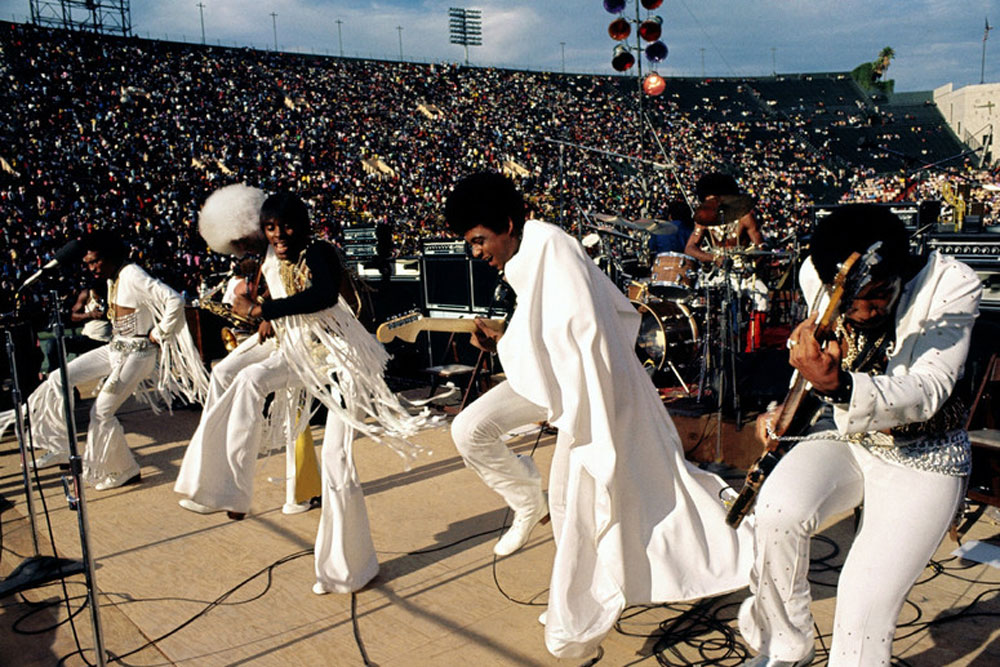Wattstax (1973) documents the concert that the Memphis record label Stax Records put on to commemorate the seventh anniversary of the Watts Uprising. Along with director Mel Stuart, of Willy Wonka and the Chocolate Factory (1971) fame, the film’s predominantly Black crew and producers decided to supplement their concert footage with interviews and observations on Black life in the United States. This includes an appearance from Richard Pryor, not yet well-known, performing his insightful and heartbreaking material for the camera in what Stuart called “the glue” of the film.
Much the same way that both the film and the concert brought attention to Pryor, they also introduced audiences to the young community organizer Jesse Jackson, who MC’d the event. Jackson was the founder of the Rainbow/PUSH organization, a non-profit aimed at protecting and promoting civil rights across the globe. Following the assassination of Martin Luther King Jr., Jackson became one of the most well-known civil rights leaders in the United States. Musicians like the heavy funk pioneers The Bar-Kays and Rufus Thomas, “The World’s Oldest Teenager,” are also given ample screen time. We watch them energize the audience and set loose a pageant of dance moves and glee throughout the crowd. The spirit of Wattstax, according to accounts from those who attended the event—and as seen in the film—was one of joyous celebration and pride, encapsulated in Jackson’s “What time is it? Nation time!” call-and-response chant, which referenced the growing movement of Black political and social self-determination articulated at the National Black Political Convention in 1972, and Kim Weston’s stirring performance of the Black national anthem, “Lift Every Voice and Sing.”
While the underlying economic, social, and political seriousness of the circumstances that brought the concert to be are essential, the film—even with its documentary digressions—remains an infectiously fun and unparalleled musical delight. Stax Records hoped that Wattstax would grow their media presence and let them make more films, much like Detroit’s Motown Records. Indeed, Wattstax is an incredible showcase of the label’s talent in addition to being a unique concert film. While films like Soul Power (2008) address similar historical circumstances and feature many more well-known acts at their energetic best, Wattstax is unique because it features a diverse cast of Black artists at a critical moment of possibility in the United States. What we see on-screen is a profound expression of self-determined Black working-class progress after acute violent oppression. The film does not only show this on the stage, but in its community’s thriving art, culture, and political scene.
Wattstax screens this evening, January 20, at Anthology Film Archives as part of the series “Blackout 1973.”



